The ability to ascertain deception can not only be learned, but it can almost be near perfected, as a couple of your noted text will reveal. Your inability to do so, based on your personal frame of reference, will not allow you to believe that this is possible. To you, this is not reasonable.I accept the challenge, Sr. Kurgan. I shall open my mind to the possibility that the ability to ascertain deception can be near perfected.
In truth, I hope this is true, as long as we have a way to find out who has those skills. The fact that I now lack the skills, does not mean I do not aspire to learn them if they indeed can be learned. If I think I have learned the skill, I will likely credit it can be done. Even if I can't learn the skill, if someone else can demonstrate it in a controlled experiment, well, I am much comforted by that type of certainty.
My thought is that this inquiry is not anti-law enforcement, but rather a desire to have a more nearly accurate law enforcement.
DNA and fingerprints are good examples. Both of these tools are misused and misread by unskilled practitioners (remember the guy that got shipped to Spain to answer to blowing up the train based on a bad FBI reading), but, well-done, they have impressive results.
Perhaps twice in the last year, I have believed the system had grabbed the wrong guy. I wanted fingerprints. If we have the wrong one, we want a reliable way to test that. One young man was freed of his charges on the spot when the fingerprint guru (I think from Harlingen PD) showed up and said our man was not who the arresting officers thought he was. There was also about twenty tattoo differences, but we did not need to reach that.
The Innocence Project has shown that more nearly accurate law enforcement can help acquit the innocent. DNA has produced 215 post conviction exonerations. The average length of time served by exonerees is 12 years. The total number of years served is approximately 2,640. Sixteen served time on death row. And to me the most disturbing fact: False confessions and incriminating statements lead to wrongful convictions in 25 percent of the DNA exonerations. (How false confessions come about will be a later discussion).
Differently put, if either a machine or a person can accurately tell truth from lie, that would be helpful. We may produce another 215 exonerations.
Where do we begin? Stan B. Walters in his Principles of Kinesic Interview and Interrogation begins with the following:
1. Darwin says, "Repressed emotion almost always comes to the surface in the form of body motion."Walters then give three reasons for the failure of people to accurately identify deception:
2. In general, human beings, including investigative interviewers, do a poor job at spotting deception, with the results being little better than chance. Walters cites (Ekman, O'Sullivan 1991).
In other words, Walters thinks most everyone gets it wrong now, but with the proper training, the problem can be fixed. This is the premise I want to explore.
1. Judging on verbal and non-verbal behaviors that are not reliable cues to deception.
2. Being unaware of the cues that do have a higher incidence during deception.
3. Making bad judgments because of the interviewer's preconceptions about the subject's likely credibility.
Before getting there, though, with a compulsive rejection of secondary sources, we should find out what Darwin really said.















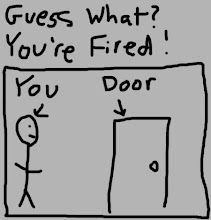










_-_Dante_And_Virgil_In_Hell_(1850).jpg)















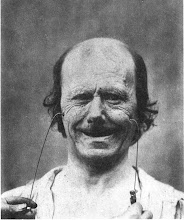
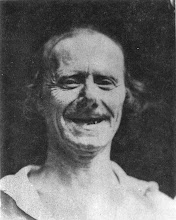


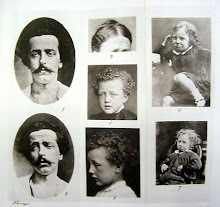





















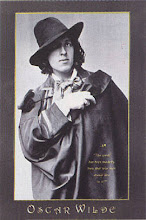













11 comments:
Dr.
The question at hand and the premise "False confessions and incriminating statements lead to wrongful convictions" as well as "How false confessions come about" are exclusive issues.
I was actualy referring to honest detection of deception, not induced deception.
K
That is correct. False confessions do involve a different issue than detecting deception. However, I do believe if the interviewer is convinced of the guilt of the interviewee, (based of false cues) he is more likely to persist until the interviewee "confesses."
Sensei,
Very true. Especially of bad investigators.
Set your sights on a target and then build your case around them as opposed to actually doing the work, build the case and let the primary target surface.
It may be a combination of laziness or the ignorance of not knowing how to run an investigation.
Either way, cameras in interrogation rooms will protect both parties.
On the training and learned ability, I think TSA is going to double the number of "Deceptive Behavior Detection Officers."
Opporunity knockin'?
K
For me this entire notion of reading people is the biggest bunch of poo poo out there. Believing reading people will ever be accurate is tantamount to chasing windmills -
It is one hundred percent subjective and the idea that personal bias will not influence the reader is absurd.
There is an old Supreme Court case - before the morons took over - It was a mental health case. The psychiatrist testified that the man was paranoid because he objected to his confinement in a mental health institution. The Supreme Court in overruling the psychiatrist reasoned - it would be abnormal to not object to being confined in a mental health facility.
Remember these same so called experts use to diagnose people with atypical personality disorder - which means - something is odd about this person but I cannot put my finger on it - who in their right mind would trust the opinion of such people.
In the employment context, psychiatric medicine has been challenged in case after case on the issue of emotional injury - court after court has found it to be junk science - these same pathetic appellate judges then rule the subjective opinion of a investigative reader is valid.
So what there is a video tape of the emotions of the alleged wrongdoer - it is still a question of, does the behavior truly indicate wrongdoing?
I have a lot older half sister who got in the elevator with Eddie Murphey in Vegas - she had no idea who he was - she became convinced that the behavior of Mr. Murphey and his body guard was a threat to her - it was not - she was very disappointed in herself when she realized that her personal bias got in the way of reasoned perception of the reality.
BW,
You said:"this entire notion of reading people is the biggest bunch of poo poo out there."
I know of several thousands of poker players who will disagree.
In fact, I think that the ability of our survival instincts to percieve something that is almost inarticutable is ingrained into us.
It is part of the human survival mechanism, the proverbial "sixth sense" if you will.
Honing the abaility is subject to debate, but there are those among us who listen to and depend upon that skill.
It is very, very real.
Kurgan
comparing reading people in the context of law enforcement - to a specialized event like poker, is absurd - poker is highly specialized - a handful of players have learn a limited number of signs to indicate if someone is bluffing - in many cases it comes from playing with someone over and over again.
for the longest time police got away with the black man crossed the street when he saw me- that lead me to believe he was running or had done something wrong -
the courts eventually rejected such conduct as probable cause to stop - given the history of the police with blacks - crossing the street was perfectly normal
BW,
At least you acquiesce to my point that there is such a thing. In fact, you point out that the ability for a poker player to read people, under certain circumstances, is reasonable.
I will assert that a well trained and experienced TSA employee, whose sole purpose in life is to observe human behavior, will gain the same abilities with time. This is also resonable.
I will grant you that they are certainly not always correct, but I am saying that they are right more often that you are willing to admit.
If you will allow that it is a plausible possibility, I can assure you that there are more than a few out there, using their powers for good.
I will also concede that for every one of those, there is a bully with a badge who have no hope of ever understanding what the hell we are discussing, but will readily use it to defend a bad stop.
Kurgan
Dear Ed,
I am sorely disappointed, I believe you may be sliding down the slippery path that is all too often tread by your fellow bloggers. What began as a satirical, and honest, discussion of "all things under the sun" has regressed from the sweeping generalization to the more tedious details. Would Montaigne ever move from the subtle to a direct attack on French Law? Would he ever argue the merits of anything so trivial?
So Ed, I like the lost pilgrim feel I have lost myself midway in the journey of our life together. Let us examen our current woods. Let us climb our tree together. We should stop looking at the branches so we can see the horizon. Enough with the small fish, let's tackle somethign grand. Why not, "the education of children?"
Dear Anonymous,
Thank you for warning of the slippery slope.
Unfortunately, like our Asperger's stricken English Bulldog, I sometimes become entranced by the minutiae and have trouble moving on. She with the dead roly poly or the string on the floor, me with whatever personal shortcoming has most recently grabbed my attention.
I fear I may be stuck for a while.
As to Montaigne and a direct attack on French Law, please see, OF SUMPTUARY LAWS. GOAB would sink to the tedious details while painting the bigger picture.
Stick around. I always seem to cycle back to impractical generalities where I am quite comfortable.
May I add...
Of the education of children. This may indeed be my greatest area of insecurity. However, GOAB does have a starting point in his essay entitled OF THE EDUCATION OF CHILDREN, oddly enough.
Anything I opine in this area will be roundly criticized by Kathy, because she educates children and I do not.
However, ignorance has never really hindered my expression of opinions, so with your kind encouragement, I'll take a stab at it.
ignorance has never really hindered my expression of opinions
Is like a motto for my life...
Patricia A.
Post a Comment